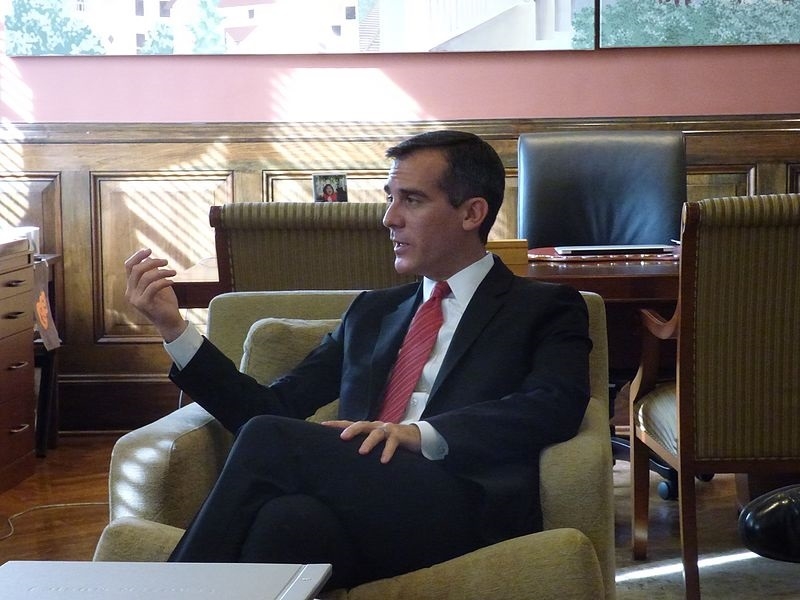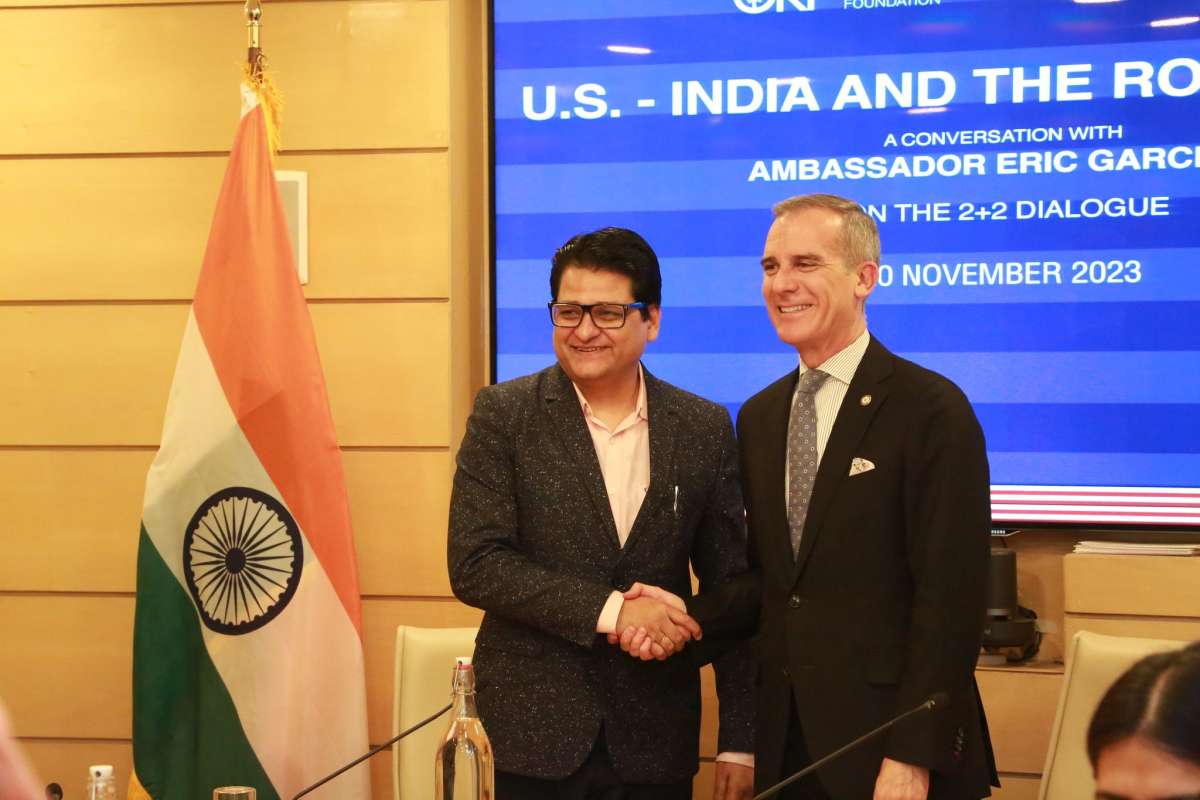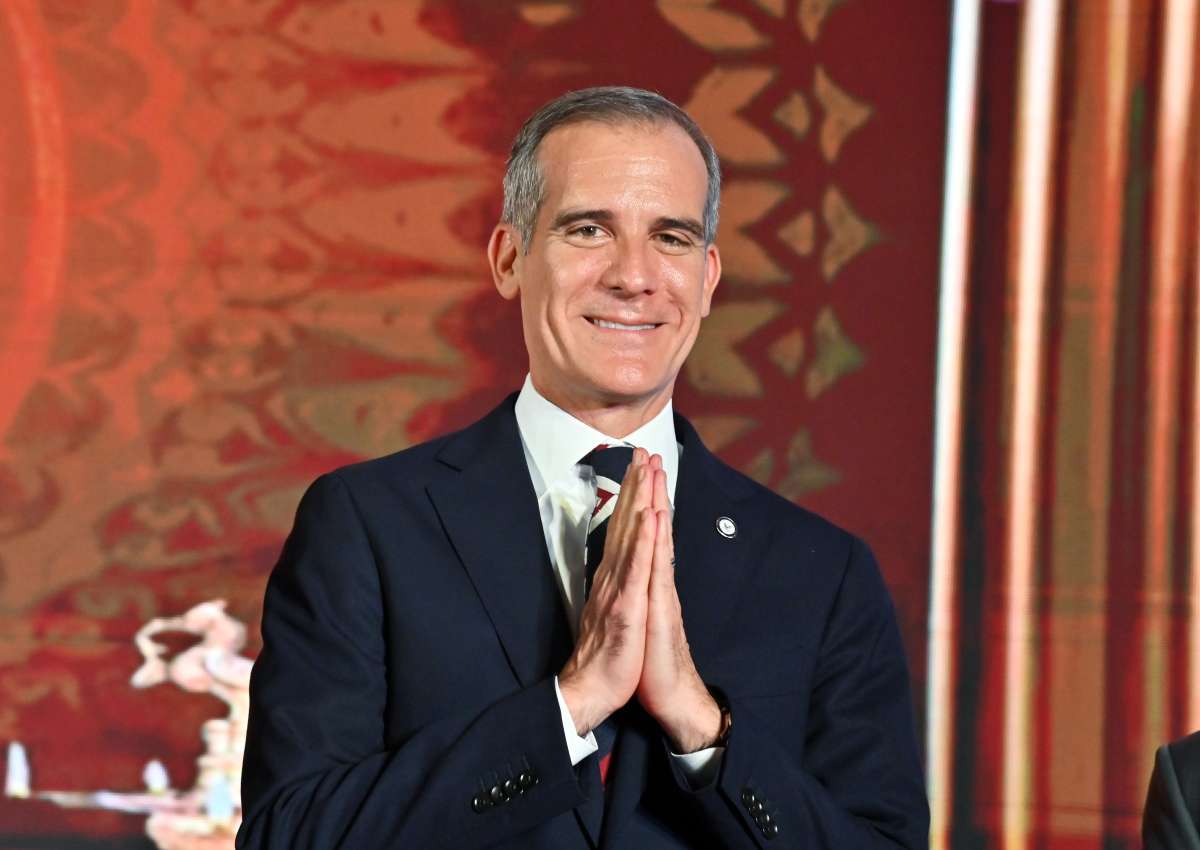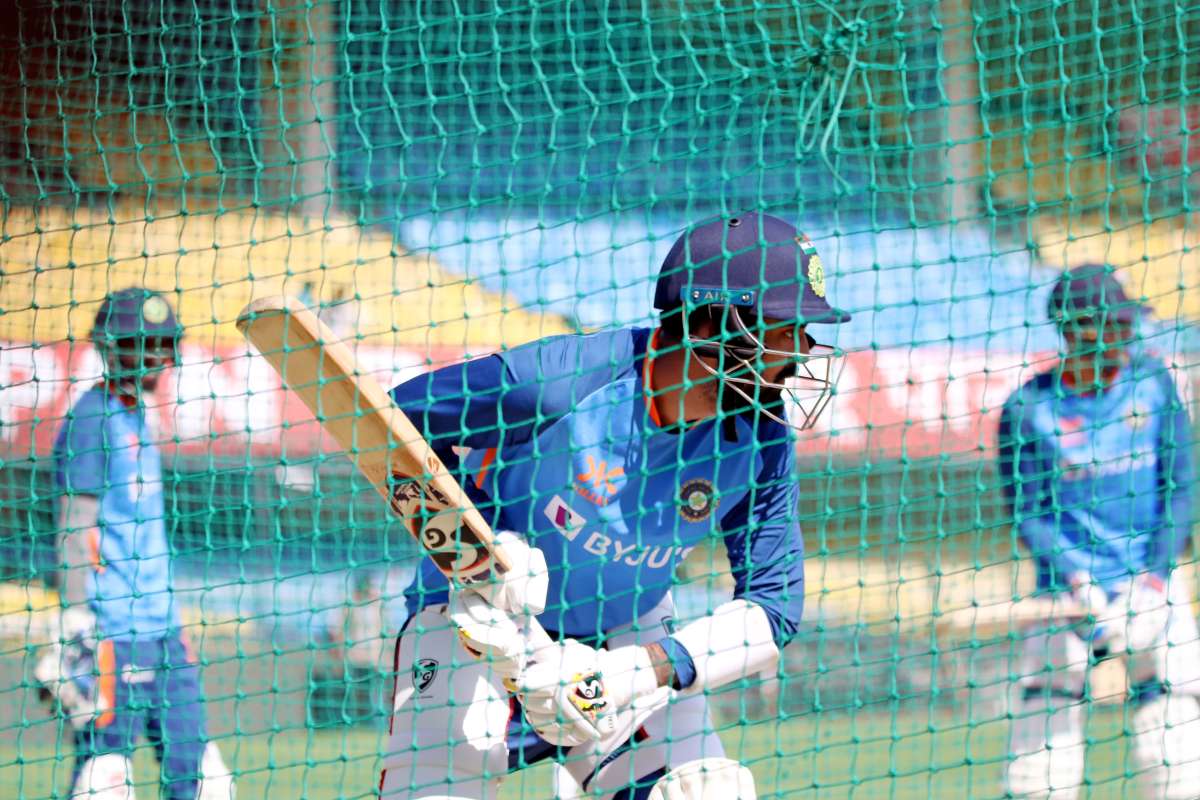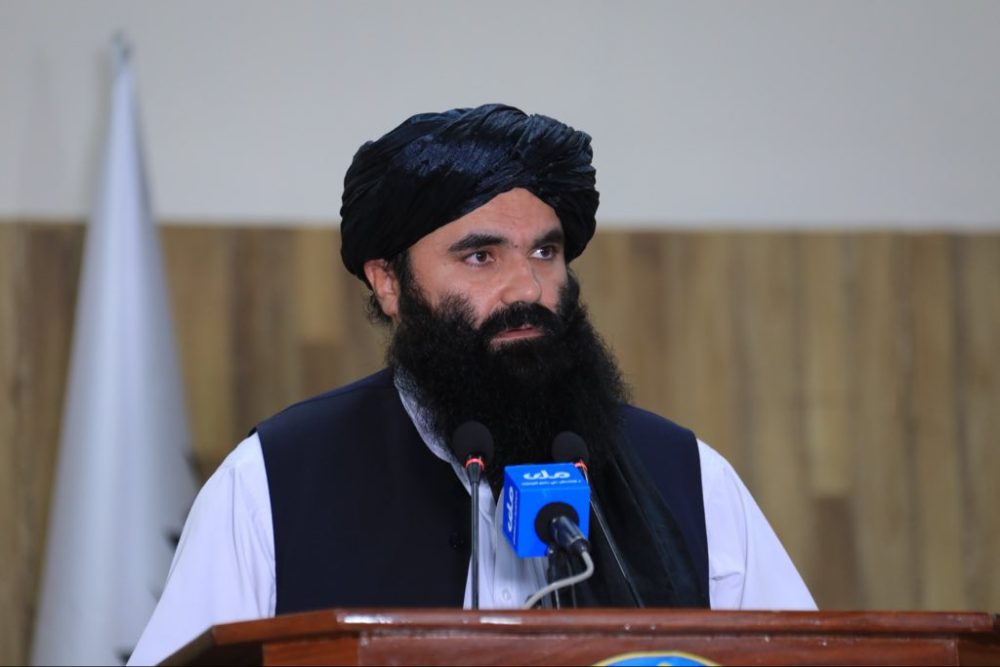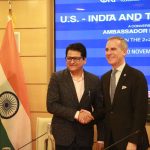President Biden had first nominated him in July 2021, but it did not proceed and it was technically deemed as returned to the White House, to either be re-sent or replaced…writes Yashwant Raj
Eric Garcetti was confirmed as the next US Ambassador to India on Wednesday, ending a logjam that had left an important American mission abroad without a regular envoy for almost two years and his fate in the balance.
The US Senate confirmed him in a 52-42 vote with cross-voting from both parties, with several Democrats voting against Garcetti, a nominee of the Democratic President Joe Biden, and several Republicans siding voting for him.
Garcetti, a former Mayor of Los Angeles, was once a rising star in the Democratic party, but had had come under severe criticism lately for ignoring complaints of sexual harassment against one of senior aides. His nomination had been stalled over these allegations, which came up during his confirmation hearing.
President Biden had first nominated him in July 2021, but it did not proceed and it was technically deemed as returned to the White House, to either be re-sent or replaced.
The Biden White House sent back the nomination this January when the new congress went into session, demonstrating the administration’s unwavering backing for him, which, it was noted, will hold him in good stead by those who may tend to consider him damaged because of the protracted fight over his confirmation.
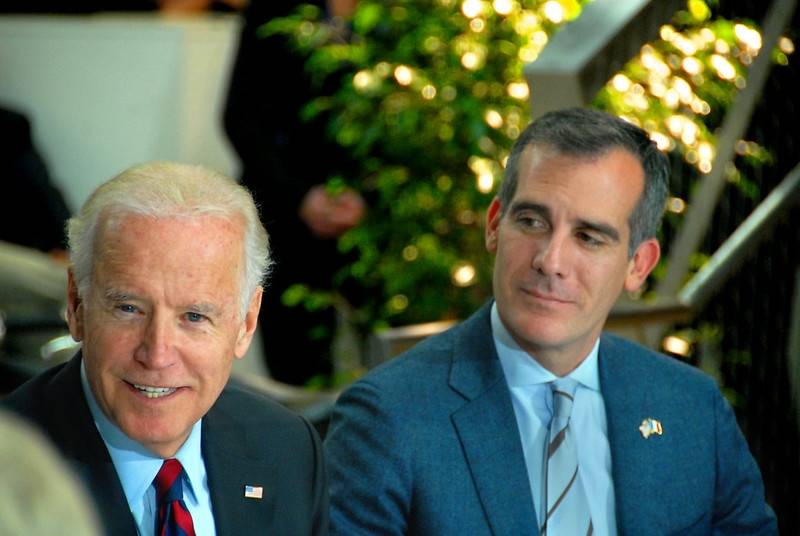
Garcetti’s re-nomination had run into fresh trouble in February when Republican Senator Marco Rubio announced a hold on it along with a bunch of others, including Rich Verma, who has been named to be a Deputy Secretary of State, and Geeta Rao Gupta as Ambassador at large for global women’s issues.
The Senate Foreign Relations Committee voted 13-8 to approve his nomination last week, setting up a vote by the full 100-member senate.
With Garcetti’s nomination stalled and the Biden administration refusing to name a nomination, observers of the bilateral relationship wondered if this was a manifestation of a deeper problem between India and US, because this was possibly the longest America has not had an ambassador in New Delhi.
This prolonged period of no-ambassador also coincided with extraordinary delays in issuance of US visas in India, with the waiting period for first-time applicants for business and tourism visas reaching two years at its worst (it’s been cut down considerably now).
Relations between the two countries were in an overdrive with President Biden putting the Quad front and centre of his Indo-Pacific strategy early in his administration, resulting in several virtual and in-person meetings bilaterally with Prime Minister Narendra Modi and multilaterally, with counterparts from Japan and Australia.
At his confirmation hearing, Garcetti had vowed to “double-down on our efforts to strengthen India’s capacity to secure its borders, defend its sovereignty, and deter aggression” — music to ears on Raisina Hill but he also plans to raise thorny issues such as the Indian purchase of the Russian S-400 air defence missile system, human rights, and democratic values.
Garcetti was once widely expected to run for White House, given his credentials: Hispanic descent, top Democratic operative, a top operative in a presidential campaign, Rhodes scholar at Oxford and alumnus of London School of Economics. Fifty one-year-old Garcetti is close to the White House and was once considered a potential member of the Biden cabinet but the same allegations that came up during his confirmation hearing had come in his way.


